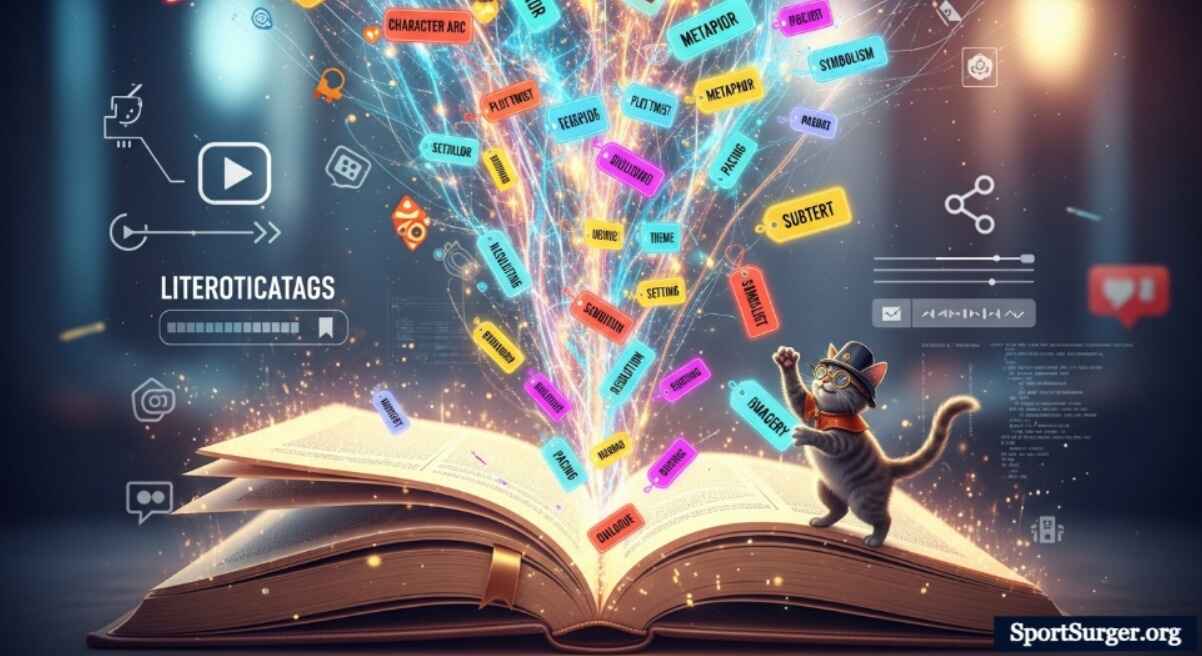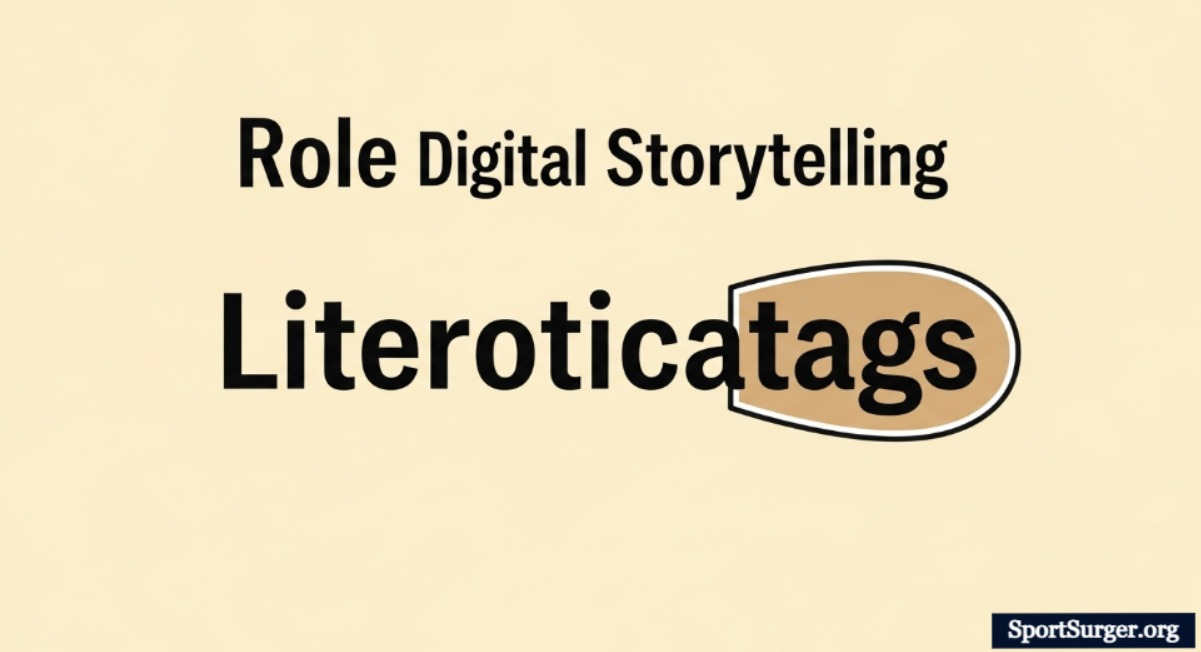Introduction
When exploring online literature, especially in the realm of adult storytelling, literoticatags play a central role in how content is discovered, organized, and consumed.
Much like keywords in traditional search engines, tags provide structure and categorization to a vast library of content. They allow readers to filter stories by theme, genre, fetish, or narrative style, while helping writers reach the right audience.
But what exactly are literoticatags, how do they function, and why are they so important for both readers and writers?
This comprehensive guide dives deep into the world of literoticatags, exploring their purpose, types, best practices, and the broader implications for user experience and content discovery.
What Are Literoticatags?
Literoticatags are metadata labels attached to stories, used to categorize content based on themes, topics, or characteristics. They serve three main purposes:
- Organization: Tags create an index that organizes a massive volume of stories.
- Discovery: They allow readers to find stories aligned with their preferences.
- Communication: Tags signal to readers what kind of experience or themes they can expect.
The Role of Literoticatags in Content Navigation
Without tags, browsing would feel chaotic. Imagine entering a library with no categorization—finding the right book would take hours. Literoticatags solve this problem by functioning as navigational tools.
For example:
- A reader looking for “romantic” stories can filter by that tag.
- Someone interested in “fantasy” themes can combine tags like fantasy, magic, and adventure.
Types of Literoticatags
Genre-Based Literoticatags
These tags describe the overall narrative style or literary genre. Examples include:
- Romance
- Fantasy
- Science Fiction
- Historical
- Mystery
Theme and Mood Literoticatags
These tags define the emotional tone or overarching concept. Examples include:
- Forbidden Love
- Coming of Age
- Betrayal
- Humor
- Dark Themes
Character-Driven Literoticatags
These focus on roles, personalities, or relationships between characters:
- Teacher/Student
- Friends to Lovers
- Power Dynamics
- Hero/Villain
Setting-Based Literoticatags
These tags emphasize the backdrop where the story unfolds:
- Medieval Castle
- Urban Life
- Futuristic City
- Island Adventure
Specialized Fetish or Niche Literoticatags
In adult literature, niche categories help readers find exactly what they are looking for. Examples include:
- Roleplay
- BDSM Dynamics
- Voyeurism
- Fantasy Creatures
Why Literoticatags Enhance Reader Experience

Personalized Discovery
Tags act like filters in a streaming platform. They ensure readers spend less time searching and more time reading stories that match their interests.
Trust and Transparency
By scanning literoticatags, readers know what to expect before investing time in a story. This minimizes disappointment and builds trust between the platform, writers, and readers.
Improved Content Engagement
Stories with accurate tags tend to generate higher engagement because they attract the right audience. Readers are more likely to leave feedback, ratings, and recommendations when a story meets their expectations.
Best Practices for Using Literoticatags
For Writers
- Be Accurate: Only use tags that truly represent your story.
- Balance Broad and Specific Tags: Combine general tags (romance) with niche ones (workplace romance).
- Avoid Over-Tagging: Using too many irrelevant tags can mislead readers and hurt credibility.
- Think Like a Reader: Consider what terms readers would use to find your story.
For Readers
- Experiment with Combinations: Pairing tags (e.g., fantasy + romance) leads to unique discoveries.
- Check Related Tags: Exploring similar tags expands your reading horizon.
- Use Tags to Build Playlists or Collections: Many platforms allow you to save stories by tag preferences.
Literoticatags vs. Traditional Tags
| Feature | Literoticatags | Traditional Tags (e.g., blogs) |
| Purpose | Helps readers navigate adult literature | Categorizes general online content |
| Specificity | Often niche, detailed, and explicit | Broad and topic-based |
| User Intent | Pleasure, exploration, entertainment | Information or knowledge-seeking |
| Impact on Discovery | Highly influential in personalization | Useful but less experience-driven |
Challenges with Literoticatags
- Overuse or Misuse: Some writers over-tag to gain visibility, leading to reader frustration.
- Standardization Issues: Without strict rules, different writers may use variations of the same concept (e.g., sci-fi vs. science fiction).
- Evolving Trends: New categories emerge as cultural trends shift, requiring constant updates to tagging systems.
Expert Insights on Literoticatags
- Literary Analysts highlight that tags function as micro-genres, shaping how stories are consumed in the digital age.
- Writers report that stories with accurate tagging see up to 30–40% more engagement than poorly tagged ones.
- Readers consistently rate tags as one of the most valuable features in choosing what to read.
Actionable Strategies to Improve Literoticatags
- Create Hierarchies: Group related tags into clusters for better organization.
- Introduce Standardization: Platforms can provide a controlled vocabulary to reduce redundancy.
- Leverage User Feedback: Allow readers to suggest or vote on tags for accuracy.
- Incorporate AI Tools: Natural Language Processing (NLP) can recommend tags based on story content.
Conclusion
In the digital storytelling landscape, literoticatags are more than just labels—they are the backbone of content discovery and user satisfaction. By guiding readers to the right stories and helping writers connect with their audience, tags create a more personalized and rewarding experience.
For writers, mastering literoticatags can mean the difference between being overlooked and building a loyal reader base.
For readers, they open doors to tailored journeys across genres, moods, and fantasies. As platforms continue to grow, the thoughtful use of literoticatags will remain essential to shaping the future of online literature.
FAQs
Q1: What are literoticatags used for?
They categorize and label stories, making it easier for readers to find content that matches their preferences.
Q2: How do I choose the right literoticatags for my story?
Focus on accuracy, combine general and specific tags, and consider reader search intent.
Q3: Can tags influence a story’s popularity?
Yes. Stories with well-chosen tags often rank higher in platform searches and receive more reader engagement.
Q4: Are literoticatags the same as keywords?
They are similar but not identical. Keywords focus on SEO for search engines, while tags primarily organize and filter content within a platform.
Q5: Do literoticatags evolve over time?
Yes. New tags emerge as cultural trends, genres, and reader preferences evolve.

